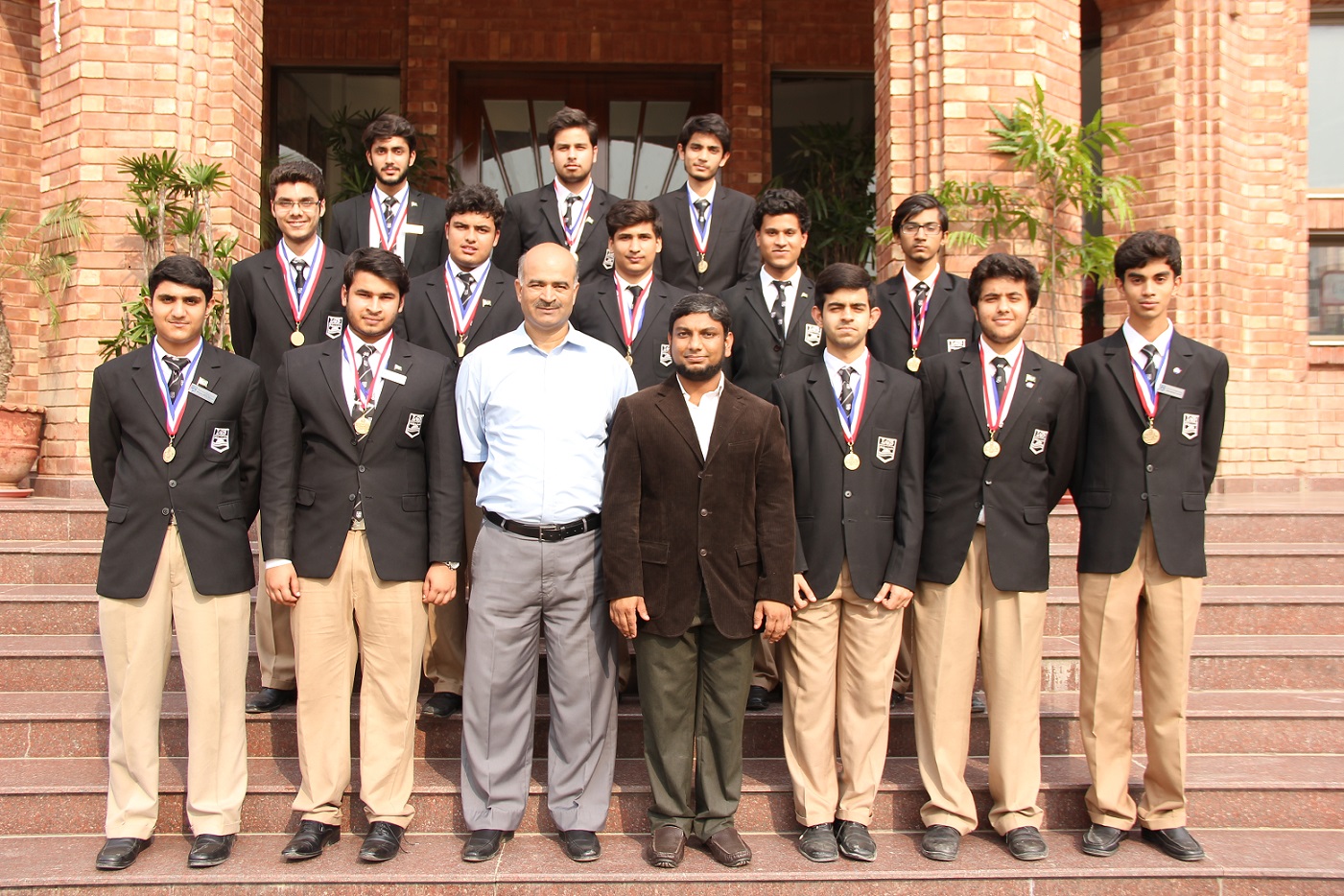Qasif Shahid has been making waves – it’s not every day that one decides to upend a country’s financial sector and utterly revolutionize it. ROZEE.PK sat down with Qasif some time ago to get the scoop on what makes him tick, just how big this financial revolution really is, and where he sees himself (and Pakistan) in the future.
What is the concept behind FINJA?
FINJA is a FinTech – which are companies dedicated towards reinventing the banking industry. The term “FinTech” is abbreviated from the words Financial Technology, hence the firms within this industry are obsessed with digitizing the financial value chain. FinTechs are a fairly new kind of start-up business within Pakistan and FINJA is one of them. We came up with the name FINJA as a play on the words Finance and Ninja.
At FINJA, our vision is very focused – we want to free commerce within Pakistan. We believe that the fastest way to transform our country for the better is by digitizing the economy. We want to help people reinvent their relationship with money rapidly, and the only way to achieve this would be by eliminating the costs of making payments.
A bank account is the birthright of every citizen, and we want to give people limitless and unconditional access to their money. Through our app, we have decentralized the role of a bank – allowing our users to access their finances digitally from anywhere within the country, regardless of the day and time they choose to do so. The whole idea is to give people complete autonomy over the way they choose to use their money.
Our mission, in a nutshell, is to create disruptive transformation within the financial sector of Pakistan by making payments and commerce free for everyone.
We are proud to call ourselves a Pakistani FinTech, and we want to encourage people to use local financial services instead of foreign ones (such as VISA and Mastercard).
When, and by whom was FINJA started by?
FINJA is the brainchild of me (Qasif Shahid), Monis Rahman and Omer Munawar – and each one of us brought a critical piece of the overall puzzle to the table. With over 18 years of experience within the digital banking industry across the world, I have the technical know-how of the inner and outer workings of a FinTech company. Monis on the other hand is one of the first successful entrepreneurs’ within Pakistan, bringing his vast array of experience in commerce to the forefront.
With our varied skills and talents unified under the common goal of transforming the Pakistani financial system, we officially started FINJA a little over a year ago.
So how exactly do FinTechs work?
In order to explain exactly how FinTechs can change an economy, consider the following example:
FinTechs are for banks what mobile apps are for smartphone operating systems.
The context of this examples lies in the fact that almost 80-90% of the average user’s smartphone usage is dedicated towards using third-party mobile applications. This encourages independent app developers to create new content and put their work out there – creating a countless amount of content for mobile users to acquire. In turn, we can see that the Android and iOS developers, who would otherwise never have been able to develop such a diverse and abundant amount of content for their platforms, benefited.
The trick was to give app developers an incentive in the form of sharing revenues – had Google and Apple not done that, no one would be interested in developing content for their operating systems. It was only when these companies realized that they needed to innovate, that they were able to create a global change. The point in time where this change was initiated was the moment where they decided to share revenues with the developers.
Similarly, banks need to start opening up their API’s (application programming interface) to FinTechs so that they too may stand a chance to innovate the financial industry. Just as in the case of mobile applications, If the FinTechs under a particular bank grow successfully, so will the bank – if they do not, the bank does not lose anything.
The only way to make this mutually beneficial equation work would be by having the bank’s share revenues with the FinTechs.
The greater the number of FinTechs resting on top of a bank, the greater the chances that one (or a few) of them would make scale.
The future of banking and commerce is to become digitized.
In the time to come, the banks and financial institutions willing to embrace this inevitable change will be the ones that will move on to the next evolutionary step within the industry – while those which choose not to will sooner or later become insignificant and stagnate.
When did the concept of introducing mobile wallets come into being within Pakistan?
Pakistan was not able to completely benefit from the Mobile Network Operator (MNO) led payment systems which most of the developed nations had embraced by 2009. Instead, a half-done implementation was put into play. Phase 1 of the process involved the telcos setting-up “easy cash transfer” services (such as Easy Paisa), which was to be followed up by the creation of online wallets – this never happened.
Every mobile operator just seemed to mimic the same agent-network format of payments, while marketing it as “mobile payments” – there were no mobiles involved in the process!. Pakistan got stuck in a place where the agents (or middlemen) were in charge of distributing money to the people who were otherwise excluded from the financial system
It could be said that mobile wallet technology was introduced between 2008 and 2009 within Pakistan, but it had very little, if any, functionality for the end users.
Technically, the first “real” mobile wallet to operate within Pakistan was MCB Lite which was launched by the Muslim Commercial Bank in 2014 – between then and now we have seen many more such wallets entering the market.
The complete potential of these services has still not been reached – in fact, in my opinion, mobile wallets still have not taken off within Pakistan. Perhaps the key reason for this could be the telcos reluctance to push these services, as this would cannibalize their pre-existing money transfer services.
Another prominent reason for people not using these services seriously is the limited functionality being offered to them. The uses of online wallets are limited due to a very small number of players operating in the market. The higher the amount of mobile wallet providers, the greater the amount of innovative, useful services generated for the consumers.
As far as the evolution of payments goes, using cash was the “old” behavior while making digital payments is the “new” behavior. The payments need to be free, real-time and frictionless, otherwise no one will be interested in adapting to the new behavior.
You can already observe this trend prevailing in countries like Sweden, Denmark and Norway (among others), where the number of ATM outlets have visibly decreased as more and more people have chosen to give up on using cash in exchange for making digital payments.
What is SimSim’s role in reshaping the financial system of Pakistan?
For us, SimSim is not just a product – It’s a movement to free commerce within Pakistan.
We are devoted towards not only pushing other financial institutes towards creating mobile wallets, but also redefining the way people interact with each other through money. We want to create a change in the financial system where the middleman (cash agents) is no longer able to dictate the terms of the trade by placing a price on transactions.
In turn, these agents can finance and run multiple mobile wallets of their own, using FinTechs to add functionality to them. Hence, the agents will still be there, but their roles will change. At this point, the telcos can aid the FinTechs find a large amount of clients willing to consume their services.
It will be a highly functional, interdependent financial machine.
We want to stir up an intellectual debate among the consumers of financial services within Pakistan, and our users are doing exactly that on our behalf. When they use our services (through the SimSim app) and see it making their lives easier for themselves without having to pay any additional charges, they go on to inform other people about it. In order to convince other people, our users indulge in meaningful debates which showcase the benefits of free commerce – and to us, that is the ultimate return of running this service.
How far has FINJA come since it’s inception?
For a non-advertised financial service, we have already achieved far more than what any one of us had anticipated while starting the company only a little over a year ago. With over 30, 000 users and a net transaction worth of over PKR 6 million, we believe that we are on our way towards making our movement a reality. With a recent approval from the State Bank of Pakistan to advertise our services commercially, we are hopeful that our growth will only be exponential from this point.
Perhaps our biggest achievement comes from the fact that other financial institutes have faith in us, and believe in our movement. The FINCA bank, for instance, has always backed us up while even the State Bank has been more than lenient with the way we advertised our services through social media campaigns.
We feel that these institutes want us to succeed, and in doing so, shake up the financial sector within Pakistan so that the larger banks too may follow suite.
What stage is your movement currently on?
6We consider ourselves to be a platform – our users can come on board anytime they make a transaction, In doing so (using SimSim), they help us grow, and as we grow, we are able to help them save more money and time. Their standard of living improves through the use of our services and in turn, we are able to keep up our mission to free the payments system within the country.
As our users help us expand, they will be putting pressure on every other financial institute within the country to make payments free as well – that is when Pakistan can truly transform for the better. People will have more control over their money, and will have a lot more that they can do with it.
Why is there a need for FinTechs such as FINJA to help free commerce within Pakistan?
Technology can be a liberating force in any society, but only when it is free and easily accessible for everyone.
Pakistan is in dire need of digital credit financing. Only about 4% of the total population within the country is being lent money to through commercial banks. This renders an overwhelming majority unable to acquire credit financing which could be used to establish new businesses. If we can help establish free digital payments, people will be able to log their earnings more easily, allowing them to become eligible for larger loans through both, financial institutes and crowd funding.
People will actually start helping other people and we will all get to witness a decline in the demand for charity.
How is FINJA’s movement faring so far, and what does it have planned for the future?
People really do love a good fight, and in any fight, everyone always ends up rooting for the “little guy” – in our case, we’re the little guy who is going into battle with cash itself. In this David vs Goliath themed battle, we (FINJA) represent digital payments and all that they stand for, while our enemy is cash.
We want to eliminate the need to use physical money so that we may free ourselves from our dependency on large banks and financial institutions. Our users are key players in this battle – as they help us grow, we will come closer to overcoming the odds stacked against us. When we win, we all win.
So far, the State Bank of Pakistan has been more than supportive towards our cause, but they too need to do far more for FinTechs in order for them to become successful. By creating pathways for start-ups while providing guidance to newcomers and old players alike, the State Bank can aid the financial sector through its role as a regulatory body.
I feel that we (myself and Monis Rahman) were able to maneuver around in this field till we managed to make things work based on our experience – newcomers on the other hand might have a very difficult time getting their FinTech businesses started up. We want that to change.
We want more and more people to join our movement, whether or not they happen to be a part of FINJA
By the year 2020, Pakistan is expected to become the 5th largest country in the world to have internet access. Our people, regardless of their social stature or educational backgrounds are fluently using technology on a regular basis through their smartphones. We want to aid these people in enhancing their lives.
We are hopeful to maintain, and further expand upon our already exponential growth so that we may become one of the largest microfinancing banks in the world.





